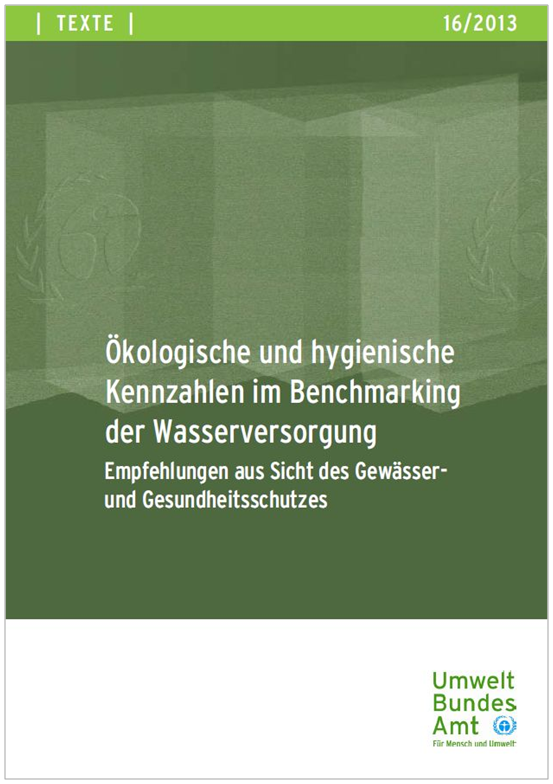Ökologische und hygienische Kennzahlen im Benchmarking der Wasserversorgung
Empfehlungen aus Sicht des Gewässer- und Gesundheitsschutzes
- Publication
- Citation
Nickel, Dr. Darla N. et al. 2013: Ökologische und hygienische Kennzahlen im Benchmarking der Wasserversorgung – Empfehlungen aus Sicht des Gewässer- und Gesundheitsschutzes, Dessau-Roßlau.
This study investigates the importance ascribed to the actions taken by water providers to ensure the protection of water bodies and human health in current benchmarking approaches of drinking water utilities. New indicators to improve the representation of these services are also suggested. Additionally, light is shed upon the risks these measures may face should centralized economic regulation, such as that currently implemented in England and Wales, be introduced. Finally, the study summarizes the possible role benchmarking approaches can play in price oversight as well as in creating a transparent presentation of the actions taken to ensure the protection of water bodies and human health. The results of the study are available for download.
With the 2002 Bundestag Resolution "Sustainable water management in Germany," the German Federal Government decided to pursue a strategy of continual modernization in the German water industry rather than one of market liberalization. A major element of this strategy was the introduction of a benchmarking system that should facilitate the optimization of technical services and business efficiency as well as ensure transparency.
One thing that must be considered in such a system is that the drinking water utilities take extensive action along the entire chain of drinking water purification for the protection of water resources and health in order to achieve the goals of sustainable water management.
The pressure to lower prices and thus abandon some of these activities has increased significantly. This has been caused by the continuing discussion about the appropriate level for water prices. Moreover, the German Federal Court of Justice decision from 2 February 2010 has made it clear that competition law can also be applied to water suppliers, and they can thus be expected to provide a justification for excessive water prices. Nonetheless, there is consensus among the German states as well as within the water industry that increased efficiency should not come at the expense of preventive measures to protect water bodies and human health.
This study was conducted within the project Ecological and health-related indicators in the benchmarking of drinking water utilities – recommendations from the perspective of water body and human health protection. The study was financed by the Federal Environment Agency.



